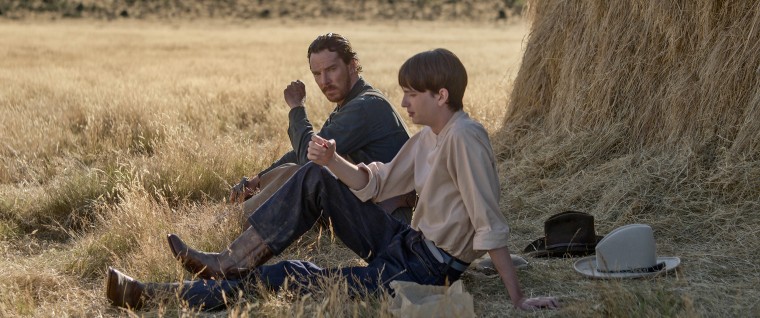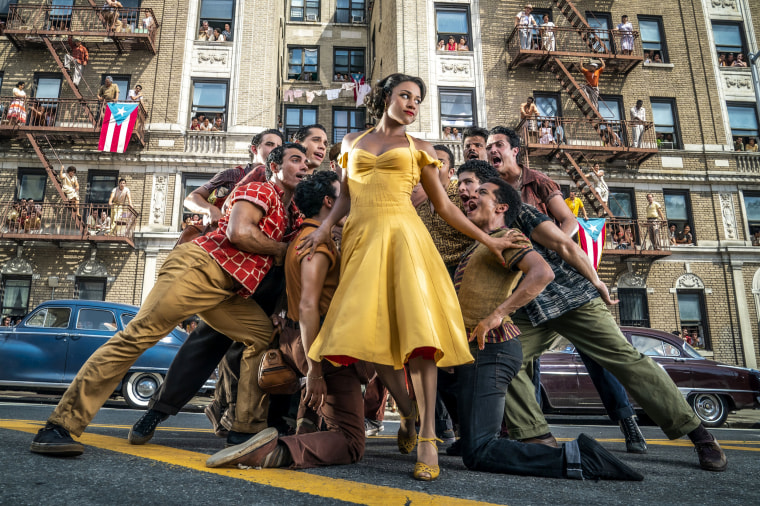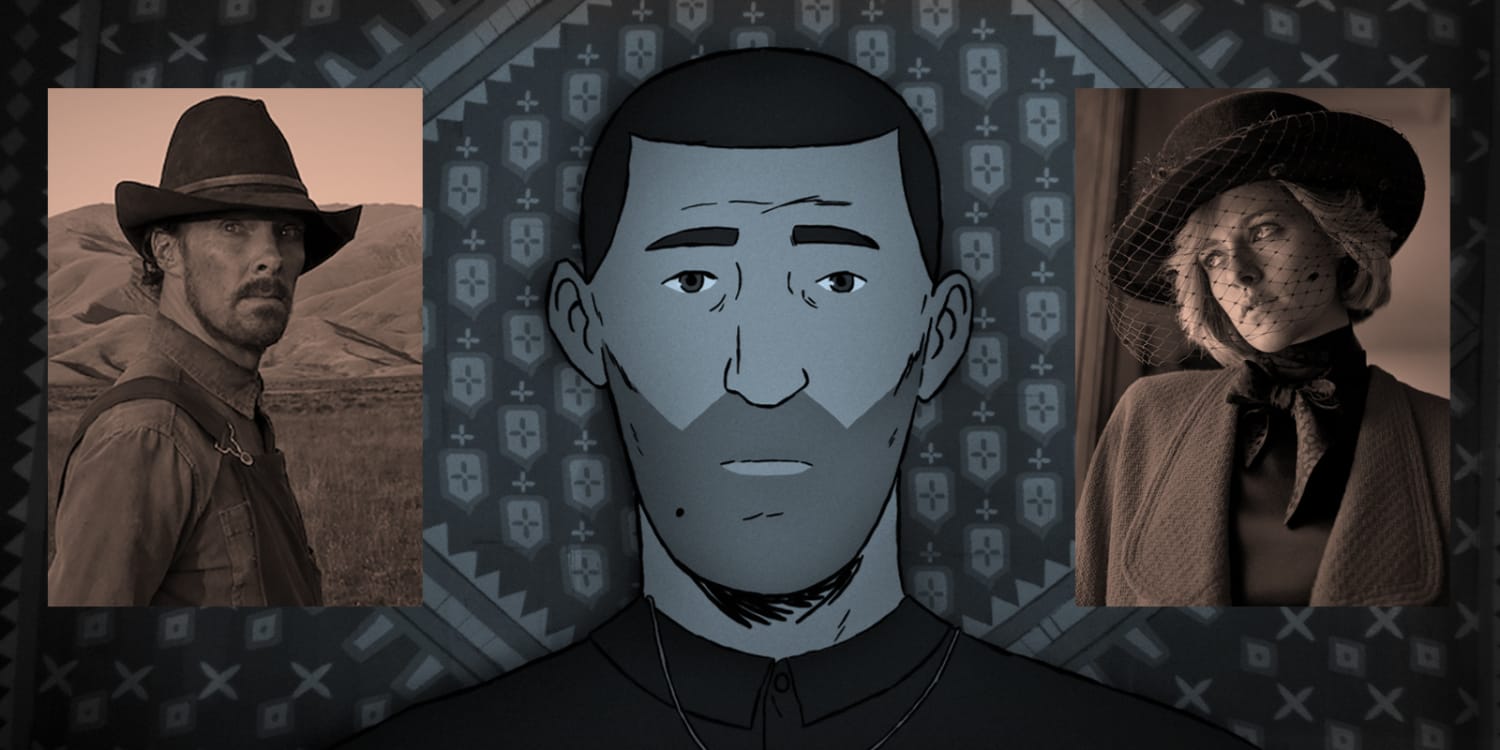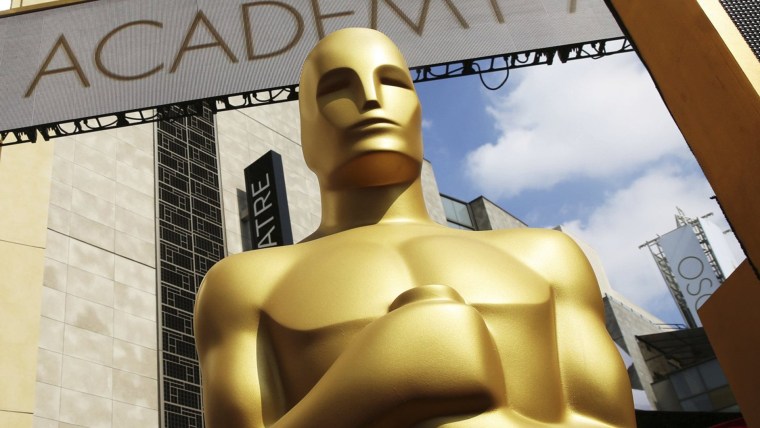One of last year’s most notable queer films, “The Power of the Dog,” directed by Jane Campion, is positioned to sweep the Oscars next month after nabbing 12 nominations on Tuesday. The nominees for this year’s ceremony were announced in an early-morning livestream with Tracee Ellis Ross and Leslie Jordan, during which a host of LGBTQ-inclusive films scored big.
“The Power of the Dog” will be competing in almost all major categories, including best picture, best director, best actor, best supporting actor, best supporting actress, best adapted screenplay and best editing. (The last two categories, while less glitzy, are often solid indicators of who will take home best picture.)

If the film about a sexually repressed Montana rancher — which stars Benedict Cumberbatch and Kirsten Dunst alongside newcomer Kodi Smit-McPhee — can beat out the mega-blockbuster “Dune” (the second-most nominated film of the day, with 10 total), it could become one of the most-winning queer films of all time. The last LGBTQ-oriented film to generate this much Oscar buzz was “Moonlight,” which beat out “La La Land” for best picture in 2017.
While “Moonlight” went into the Oscar race with eight nominations, it took home only three awards — not exactly a sweep. (The most wins of all time is 11, a record shared by “The Lord of the Rings: The Return of the King” (2003); “Titanic” (1997); and “Ben-Hur” (1959).) But its best picture win was still one of the biggest moments in queer cinema in recent memory. One that could soon, however, be topped.
“This is a massive showing for ‘The Power of the Dog,’” Ryan Lattanzio, deputy managing editor for the entertainment news site IndieWire, told NBC News. “While ‘Moonlight,’ which was also about male repression, did get eight nominations and, of course, won, ‘Power’ is a bigger deal.”
“It has Netflix support, meaning limitless funds to throw at print and digital advertising, Q&As, receptions and parties, and all of that helped contribute to the movie’s astounding 12 nominations. This is almost ‘Titanic’ levels of ‘bigness’ in terms of the sweep across categories. Whether it will win is another thing,” Lattanzio said, noting that the film is more “admired than flat-out adored” among Academy members.

Outside of “The Power of the Dog,” some of the day’s most exciting Oscar nominations involved the acting categories. Openly queer actor Kristen Stewart nabbed her first nomination, for best actress, for her role as Princess Diana in the biopic “Spencer.” The nod is a testament to Stewart’s growing star power, considering that the film, from Academy Award-winning director Pablo Larraín (“A Fantastic Woman”), was notably absent from all other categories.
“People just didn’t like ‘Spencer.’ It’s an alienating fever dream that doesn’t exactly make you feel good inside,” Lattanzio said. “Stewart’s nomination wasn’t even a sure thing in the final moments, but she’s been campaigning like hell, showing up dutifully at every Q&A, and doing all the awards chores indefatigably. That counts for something.”
Although “West Side Story” also failed to live up to its Oscars’ expectations on Tuesday, the openly queer actor Ariana DeBose earned a best supporting actor nomination for her role as Anita. The popularity of the film, directed by Steven Spielberg, has been fueled by nostalgia in the wake of the lyricist Stephen Sondheim’s death in November. And while the movie still earned seven nominations, it ultimately failed to pick up the all-important writing and editing categories.

DeBose follows in the footsteps of Rita Moreno, who played Anita in the 1961 film version of “West Side Story.” Moreno won best supporting actress, becoming the first Latina Oscar winner. Now, DeBose is the clear front-runner in the category, already prompting celebratory calls from critics.
“Ariana DeBose is winning. It’s done,” Lattanzio said. “And she will join a small group of out queer actors ever to win Oscars for doing so.”
While issues around visibility make it difficult to quantify LGBTQ actors’ milestones, Vanity Fair reported that Stewart and DeBose are the first openly queer actors to be nominated in major acting categories since Ian McKellen was nominated for best supporting actor for 2002’s “Lord of the Rings: Fellowship of the Ring.” Despite winning most of the industry’s other top awards, McKellen has never taken home an Oscar, though he is one of the few out actors to ever be nominated. Jodie Foster, who came out publicly in a Golden Globes speech in 2013, has been nominated for four acting awards, taking home best actress for 1988’s “The Accused” and 1991’s “Silence of the Lambs.” Elliot Page, who came out as transgender in 2020, was nominated for his role in the 2007 film “Juno.”
Elsewhere on Tuesday, “Flee“ — the animated documentary about a gay Afghani refugee’s difficult road to starting over in Denmark — made Oscars history with a trifecta of major nominations. It’s the first time that a film has been simultaneously nominated for best animated feature, best documentary feature and best international film. While it hasn’t had the commercial success of some of the day’s other big winners, it’s become a fan favorite among queer audiences and documentary lovers alike. And it stands a good chance of taking home at least one award in March.
“It’s a moving story about a queer man confronting his past that is impossible not to fall for. I think you’d have to be completely dead inside not to feel something for it,” Lattanzio said. “If it’s going to win any category, it’s likely animated feature, because it’s up against big movies in the other categories.”

To take home animated feature, “Flee” will have to beat out the Disney hit “Encanto” and Netflix’s “The Mitchells vs. the Machines“ — another of the year’s queer-helmed films, starring actor Abbi Jacobson, about a dysfunctional family road trip and a robot apocalypse.
Another noteworthy mention from the morning came from Spanish auteur Pedro Almodóvar’s “Parallel Mothers,” with star Penélope Cruz receiving a nomination for best actress. Cruz plays opposite Milena Smit in the sapphic film about two women bonded by motherhood and tragedy. Outside of best actress, the film picked up a nomination for best original score, joining the ranks of queer-inclusive films that failed to catch academy members’ attention this year.
“‘Parallel Mothers’ wasn’t Spain’s Oscar submission, so its chances were limited. But it’s great to see Penelope Cruz sneak into best actress, inching out someone like Lady Gaga who gives a much bigger performance in a movie that clearly didn’t land at the Oscars,” Lattanzio said, referring to Lady Gaga’s failure to get a best actress nomination for “House of Gucci,” one of the more surprising snubs of the day.

Other notable omissions from the nominations list may have been much more expected, but no less heart-breaking for the films’ fans. Despite continued pushes for diversification — and what has been a big day for queer cinema — academy members’ voting habits remain notoriously predictable, according to Lattanzio.
“’Titane‘ was never happening either. It’s too weird and violent for the Oscars, which still play it safe with palatable, bow-tied movies like ‘Belfast,’” Lattanzio said, referring to Julia Ducournau’s Cannes-winning queer body horror movie and Kenneth Branagh’s semi-autobiographical film about Northern Ireland.
“One disappointing snub, while not an explicitly queer movie, was Rebecca Hall’s ‘Passing.’ Perhaps it was too understated,” Lattanzio said. “There is a sort of queer current flowing between Ruth Negga and Tessa Thompson. But is it about women who want to be each other or sleep with each other?”
Here is the full list of Oscar nominees.
Follow NBC Out on Twitter, Facebook & Instagram
Source: | This article originally belongs to Nbcnews.com











